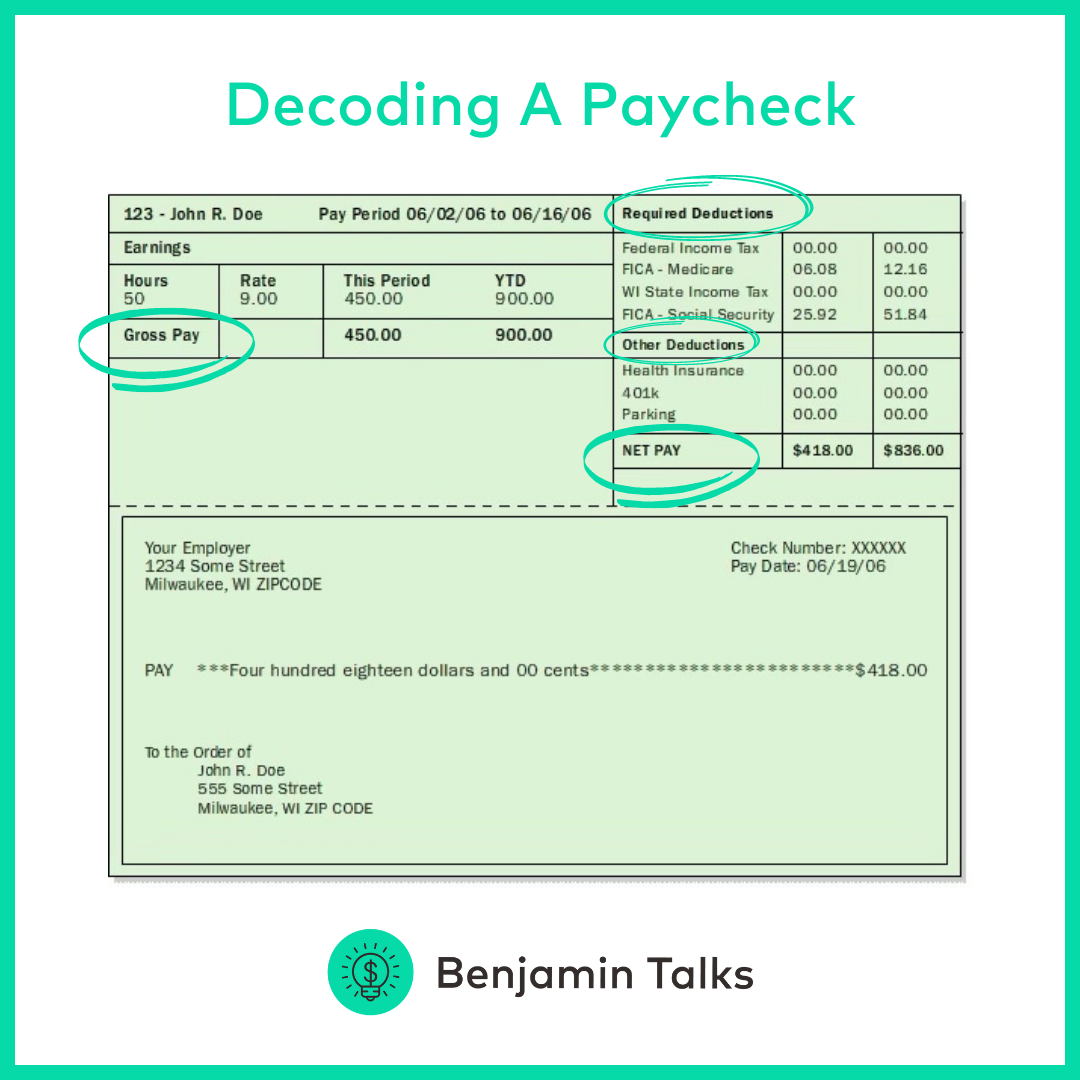How to Explain Terms on a Paycheck to Your Child
Financial Literacy: a Paycheck Explanation
Explain a Paycheck to Your Child
That first paycheck can be worth its weight in gold - not just for the profound satisfaction from hard-earned money, but also from the financial literacy lesson that comes with learning to understand a paystub.
How often workers get paid
Parents can let their budding earner know to expect a weekly or bi-weekly paycheck, though a smaller percentage of the workforce is paid monthly or even semi-monthly. Some employees receive paychecks that must be deposited into their bank accounts, while others have their earnings directly deposited alongside an earnings statement. Whether receiving an actual check to cash or an earnings statement, it's important to always scan for errors.
Terms on a Paycheck Defined
Gross Pay vs. Net Pay
So what does all this mean? One key to understanding the paycheck is explaining gross pay vs. net pay.
Gross pay is the total amount earned before any deductions (i.e. total of all money that is earned).
Net pay, by contrast, is what is earned after all deductions are taken out (i.e. what the worker actually takes home!).
Deductions:
Social Security, Medicare & Insurance
What paycheck deductions can a new employee expect? All workers pay into Social Security (a government program that provides retirement benefits to workers) and Medicare (a federal health insurance program for people 65 and older who qualify), which are funded by the Federal Insurance Contributions Act (a payroll tax).
Other deductions, such as health insurance or retirement savings, are optional for the employee. (When it comes to saving for retirement, Team BT thinks it's never too early to get started!).
TAxes
Federal and state taxes are also typically deducted directly from a paycheck. When explaining your teen’s first paystub, it’s important to note that those tax deductions won’t always be zero. Why? Because if a worker makes less than $7,600 in a year, he or she is not required to pay federal or state income tax. Above that amount, Uncle Sam will be collecting!
First jobs come with a lot of important lessons, and learning to understand a paycheck is undoubtedly one of them. Parents should take a moment to review a pay stub with their teenage earner to make sure he or she gets the biggest bang out of the first-job bucks. Its an important lesson for kids on their financial literacy journey.
Do you have any questions when you look at this mock paycheck?


